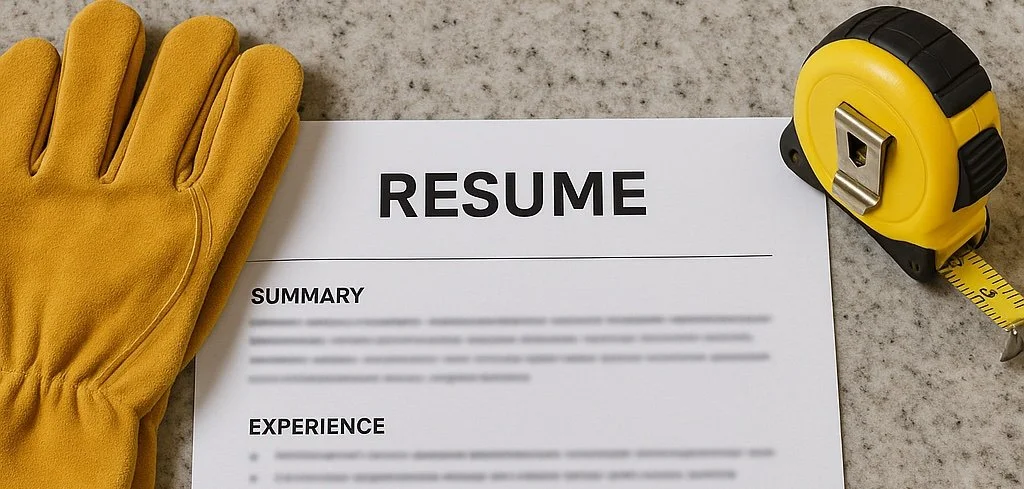How to Improve Your Resume and Land More Interviews
Hiring has slowed down across much of the country, and we’re seeing more competition for fewer open roles. That means the people getting interviews are the ones with clear, well-targeted resumes that make it easy for hiring managers to say “yes.” Whether you're applying to be a fabricator, installer, shop supervisor, or project manager, a few small changes can make a big difference in getting noticed.
Here are some of the most effective ways to improve your resume, including a few that are easy to overlook.
1. Proofread like it’s part of the job
Double-check for typos, grammar errors, and formatting mistakes before you send anything out. Even one small mistake can create doubt about your attention to detail, which is especially important in this industry where precision matters. Read it out loud or ask someone else to review it.
2. Match your resume to the job
Hiring managers aren’t looking for a perfect resume. They’re looking for a match. Use keywords from the job posting and highlight the parts of your experience that show you’re qualified for that specific role. One of the best ways to do this is to create a master resume that lists all of your experience, then cut it down or re-organize it when applying to each job. If you’re applying for a stone installer role, lead with field experience, project work, and tools you’ve used. If it’s a supervisor position, focus on leadership, scheduling, and shop workflow.
3. Keep it clean, short, and consistent
Use a simple, readable format without fancy fonts or clutter. One page is usually enough unless you’ve been in the industry for many years. Stick to a consistent layout, use the same tense throughout (past for previous roles, present for current), and always save it as a PDF so your formatting stays intact.
4. Show results, not just responsibilities
Don’t just say what your job was. Show what you accomplished. Instead of writing “responsible for polishing stone,” say something like “polished 10+ quartz and granite slabs per day with consistent quality control ratings above 95%.” Use numbers and action verbs when you can. And if you're switching roles, such as moving from installer to project coordinator, call out the transferable skills that will carry over.
5. Remove anything that doesn’t help you get this job
Old jobs from unrelated industries, outdated certifications, or your high school diploma when you’ve completed trade school or OSHA training…none of that needs to stay. If it doesn’t make you a stronger candidate for this specific role, it’s not helping you. Focus only on what’s relevant to the opportunity you’re aiming for.
6. Helpful details that often get missed
Do not include a photo, especially for roles in the U.S.
Keep formatting consistent by using the same style for dates, locations, and bullet points
Use past tense for previous jobs and present tense for your current one
Avoid personal pronouns like “I” or “me”
If you’ve completed any college, trade school, or industry certifications, you can leave high school off
Always list your OSHA certification, forklift license, or any other credential that applies to stone shop environments
7. Use AI to apply this advice to your resume
One of the fastest ways to improve your resume is to use AI. Just copy this article and your current resume into a tool like ChatGPT and ask it to suggest improvements using these guidelines. You can say: "Help me improve my resume based on the advice in this article." It’s a quick way to get targeted feedback and sharpen your presentation before applying.
If you want another set of eyes on your resume before you apply, just let us know. We’re here to help you get in front of the right opportunities and represent your experience in the best light.


